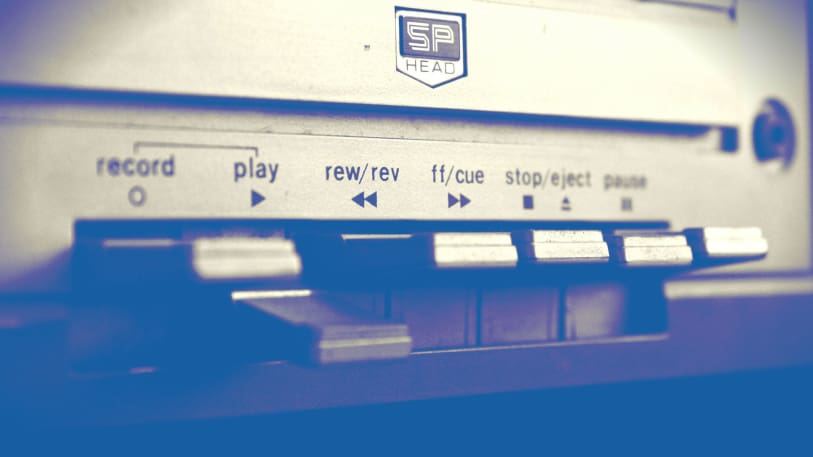Your Internet Habits Have Changed the Way You See the World. Here’s What Happened Do…
E-Strategies Week of March 28, 2017

As an entrepreneur, you are constantly trying to find an advantage. A new tool that can make you more productive, a way to save more money, a market trend you can capitalize on…
The list goes on and on, as I am sure you know. What if we told you social media is one of the biggest advantages an entrepreneur can have. Even better, it is free. Regardless of where you are on your entrepreneurial journey, pre-launch to post IPO, social media can literally be the difference in success and becoming just another failed company. You might already be active on social media, but the question is: are you taking advantage of all the benefits?
1 Ways to Keep Ideas From Staying on the Back-Burner Forever
The idea cycle is a great source of both energy and frustration. When an idea pops into your head or blooms from a conversation with a friend or colleague, you get an immediate rush of energy. Related ideas start to flood in and sound something like, “…and, then I could do this, this, and this. That would be awesome.” But your attention gets pulled back into the task at hand, the thing already occupying space on your calendar for the day. So, you write your idea down with a little promise to “get back to you, my dear.” And then… nothing happens. The idea stays on the paper, but we move on to our other, more pressing tasks.
We don’t forget the idea — but we start to feel frustration and regret for not pursuing it, not devoting the time and attention it needs to grow. We regret ever noticing its potential. We’ve loved and lost something that never was.
 Why You Should Create A Music Playlist For Your Next Meeting
Why You Should Create A Music Playlist For Your Next Meeting
The secret to making people pay attention in meetings might be to create a soundtrack. Here’s how.
Use This Trick to Get an Amazing Memory
If you’ve ever watched someone memorize and recite back a string of numbers or a long list of words and thought, “I wish I could do that,” we’ve got good news: You totally can. A simple mnemonic device used by world-class memory athletes can be taught-and mastered-by “normal” people too, according to a new study.
The brain-training trick, known as “method of loci,” involves pairing each item to be memorized with a mental image of a landmark along a familiar route-like your walk to work or to a local store. Researchers say that making these associations, and traveling that route in your mind, can not only help you remember those items better; it can also strengthen memory-related pathways in your brain.
 7 Inexpensive Company Perks That Will Make Your Employees a Lot Happier
7 Inexpensive Company Perks That Will Make Your Employees a Lot Happier
Although people need a certain amount of money to meet their basic needs, money does not buy happiness.
I know this from personal experience. After all, one of the private companies I invested in is worth about 50 times more than the check I wrote to buy a stake in it. That’s largely because it was acquired by a public company whose stock has quadrupled in the past five years and that recently popped another 5 percent after reporting record earnings.
None of that money makes me feel any happier. Instead, I feel happiness when others recognize something I did to make their life better. For example, in the past few weeks two students have told me that I taught them a concept that helped them do their jobs more effectively.
Simply put, to make your employees happier, give them experiences that recognize what they do well for other people.
Here are seven ways to do that.
Pressure Doesn’t Have to Turn into Stress
When I was in my late twenties, I was diagnosed with stomach cancer. Doctors operated and told me to hope for the best. I returned to Japan, where I was working, and tried to forget about it. The tumors returned a year later, this time in my liver. After a long search, the surgeons found a new procedure to remove them, but I knew this was, again, perhaps only a temporary fix. I was a mess for the next six months. The hardest part of my illness was my constant anxiety about it coming back.
Then I met a man who changed my outlook. Dr. Derek Roger had spent 30 years researching why some people in difficult situations become overwhelmed, while others persevere. He taught me everything he’d learned, and as I started applying it, my anxiety subsided, even though my situation didn’t change. In fact, the cancer came back about five years ago and remains relatively stable in my liver. But I no longer worry about it. Derek became my mentor, and over the past 10 years we have trained thousands of leaders to overcome their stress.
The process starts with understanding that stress is caused not by other people or external events, but by your reactions to them. In the workplace, many people blame their high anxiety levels on a boss, job, deadlines, or competing commitments for their time. But peers who face the same challenges do so without stress. Derek and I often meet executives who have high levels of pressure but low levels of stress, and vice versa.
5 Workplace Practices That Are on Their Way Out
Some things, like hair scrunchies and jazzercise, simply run their course and go by the wayside. The same should be true for things in the workplace, but sometimes it can take a little longer for people to realize those practices and trends have reached their end. As we head towards the future of work, more outdated practices will start to be replaced by newer, more innovative thinking and streamlined, employee-friendly processes. A lot of change is coming, but we can start by removing these five outdated work practices from our offices:



This Post Has 0 Comments